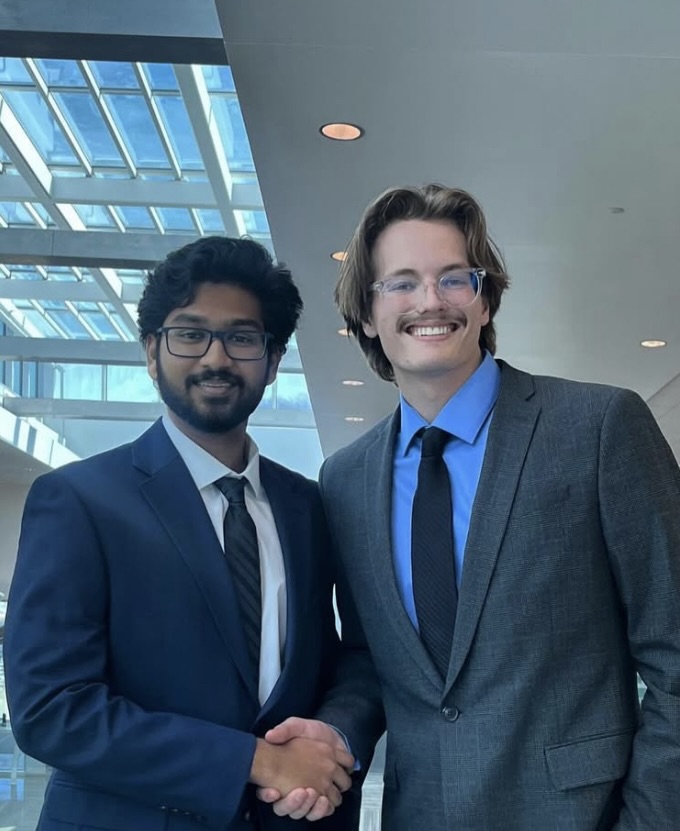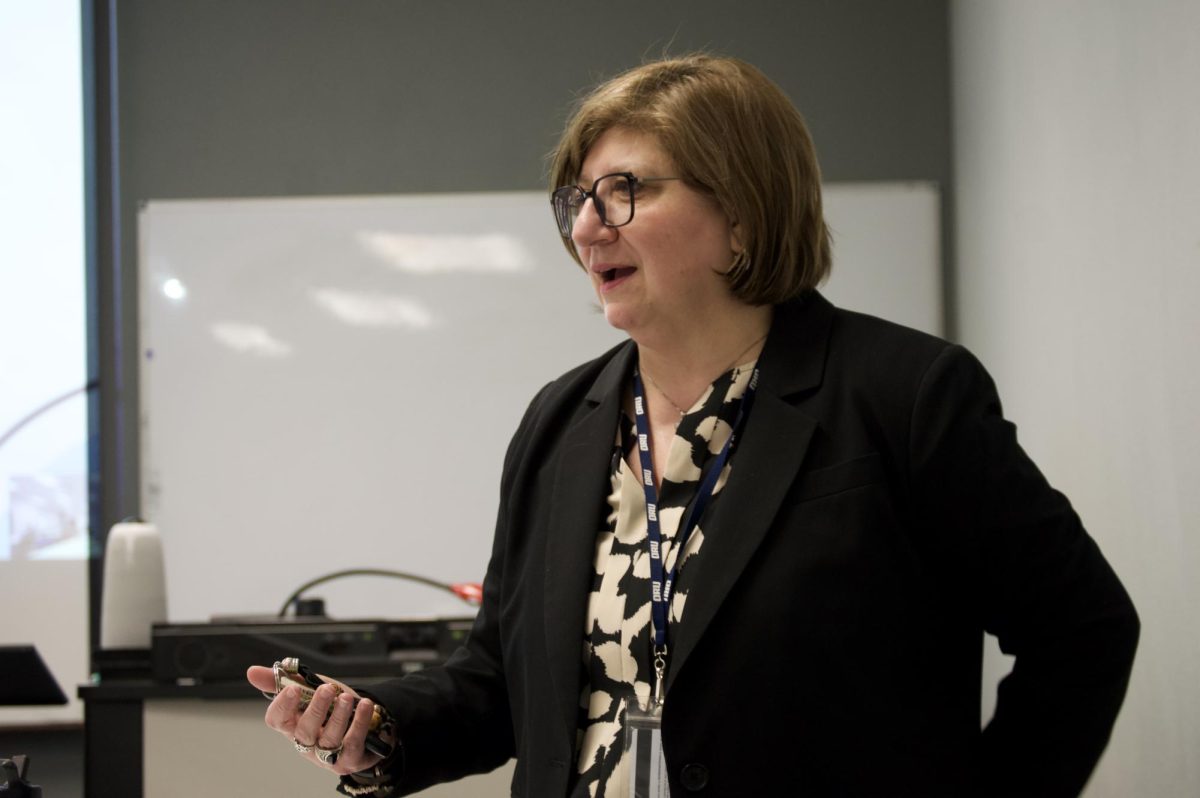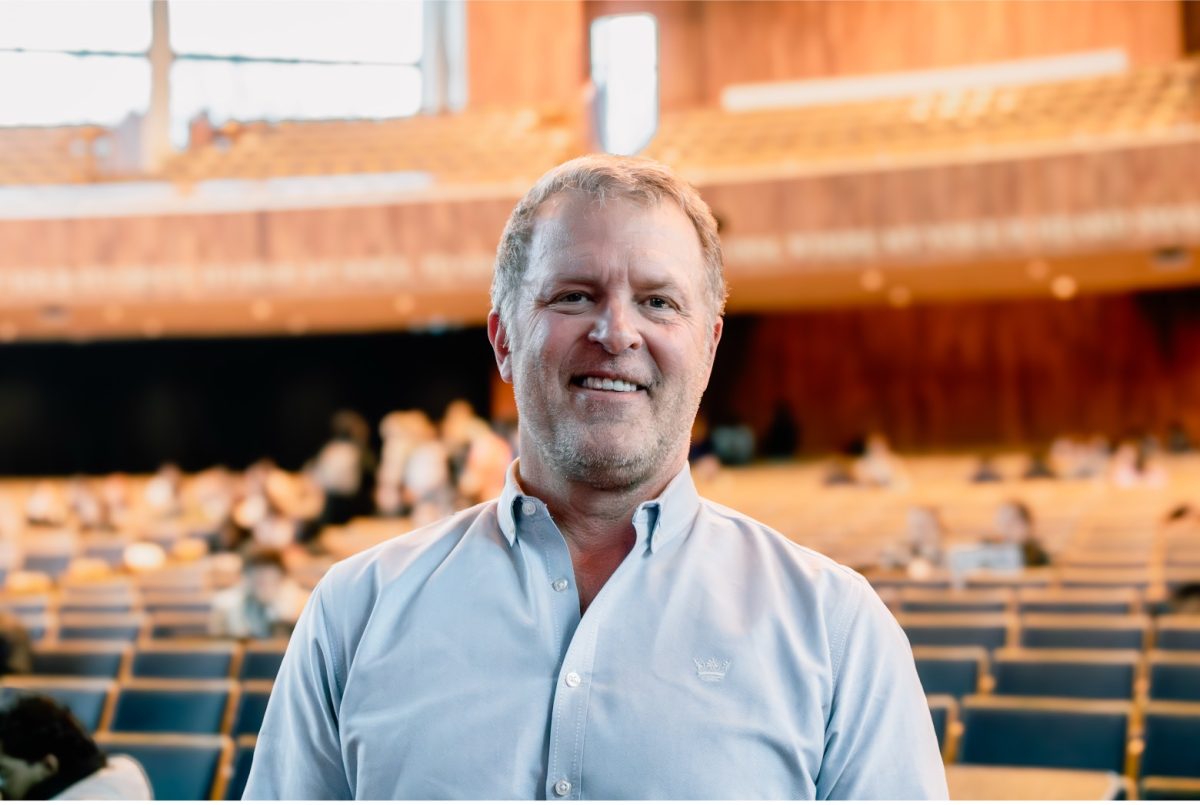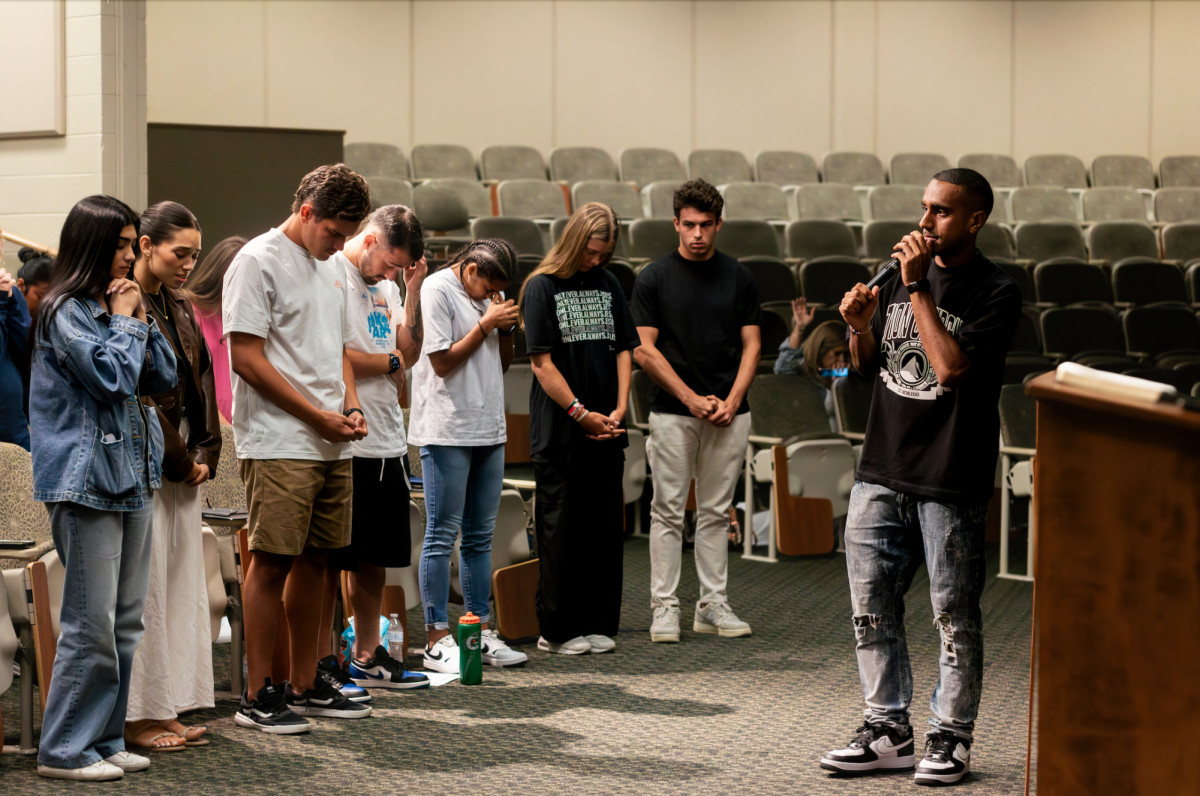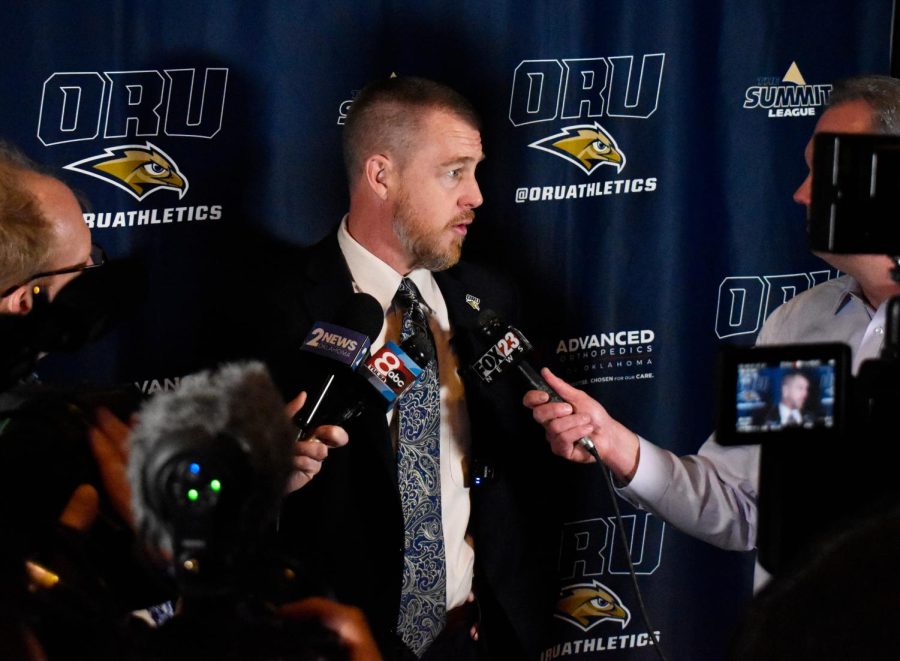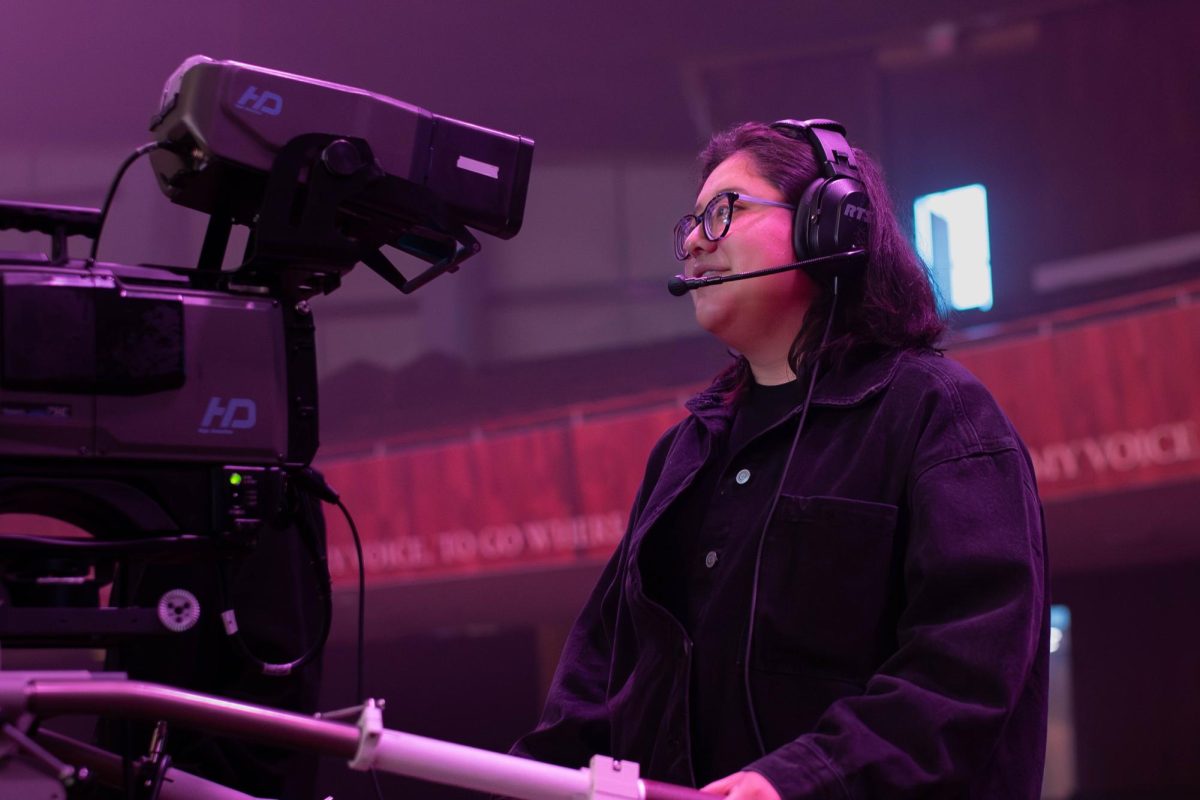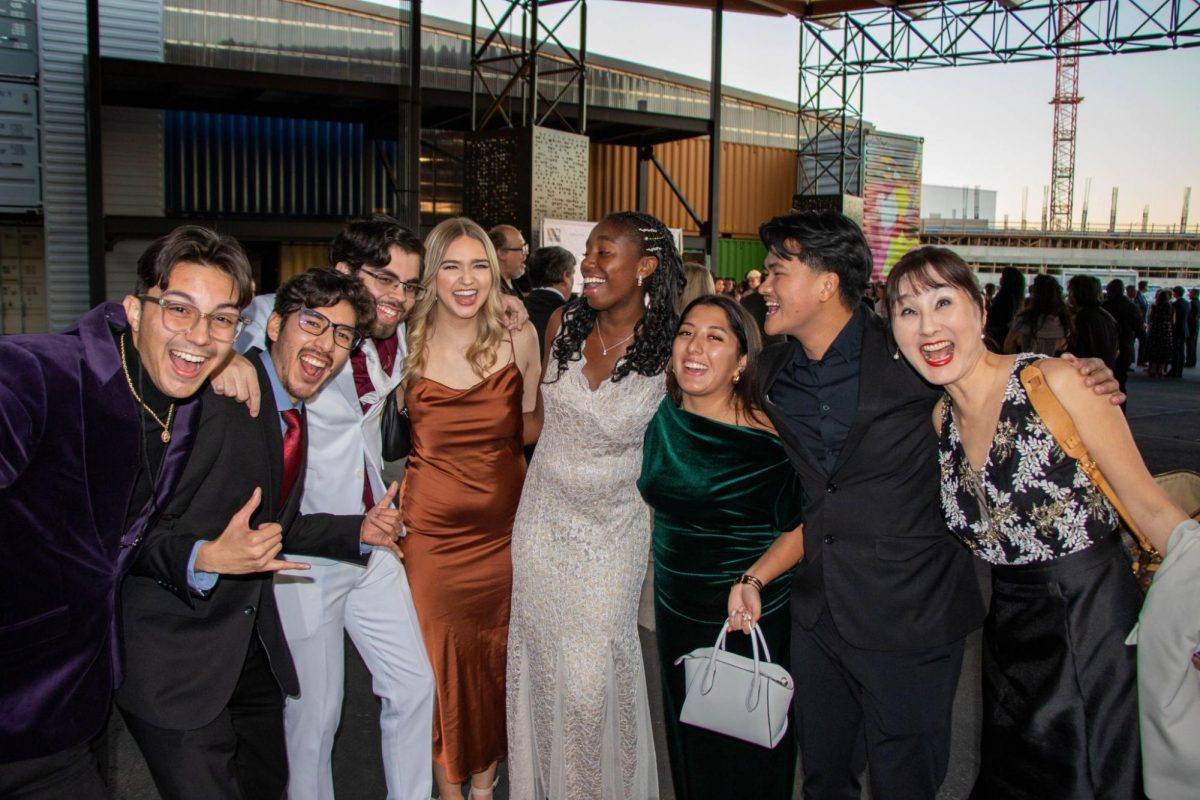Working as a media intern for Christian Chapel last summer in Tulsa, Ashley Martinez scrolled through social media and found heartbreaking news. Two Hollywood strikes, involving writers and actors alike, were in full swing and seemed to give Martinez an unsteady future in the film and entertainment industry.
The Writers Guild Strike began in early May with writers and allies marching in the streets of Los Angeles to demand better pay from streaming services and protections against the use of artificial intelligence writing scripts. The Screen Actors Guild followed suit in July for some of the same reasons.
Both strikes ended in recent weeks but the issues they raised can still create uncertainty for students like Martinez, a junior cinema, television, digital media major at Oral Roberts University. At first worried about the strike, she became determined to use her ORU degree to improve the entertainment industry.
“We’re advancing in technology and it’s taking away jobs, but we still need people,” said Martinez. “A robot doesn’t have what humans have. I don’t think it’s fair the industry is not giving credit to the right people.”
Evan Hewitt, ORU assistant professor of media arts with many years of experience in the film industry, believes change was “the heart of the strikes.” When change happens both sides of the table are figuring out how to negotiate compensation, he said.
One of the reasons for the strikes is the use of AI-generated images and voices without actors consenting or benefiting from it, which Hewitt believes is not ethical.
“You as an entertainer, as a performer, have a right to your image and the sound of your voice,” he said.
The second main reason for the strikes, which Hewitt believes is the biggest problem, is the underpaid residuals for writers and actors. Residuals include payments for cable reruns, syndication, DVD releases and streaming.
Streaming services are a new model for distributing media, changing the whole system of funding, distribution and production, according to Hewitt. The strikes aimed to stand firm on equal pay for all media distributions.
Martinez believes what is missing within the industry is respect.
Happily, Martinez acknowledges her ORU professors for teaching her the importance of respecting every person and every role within the production.
“Everybody needs respect; everybody deserves to be given credit,” said Martinez. With her degree, she hopes to rightfully give credit and payments to others because “It’s a business … people in the industry need money … they not only do this for fun, they do it for their lives.”
